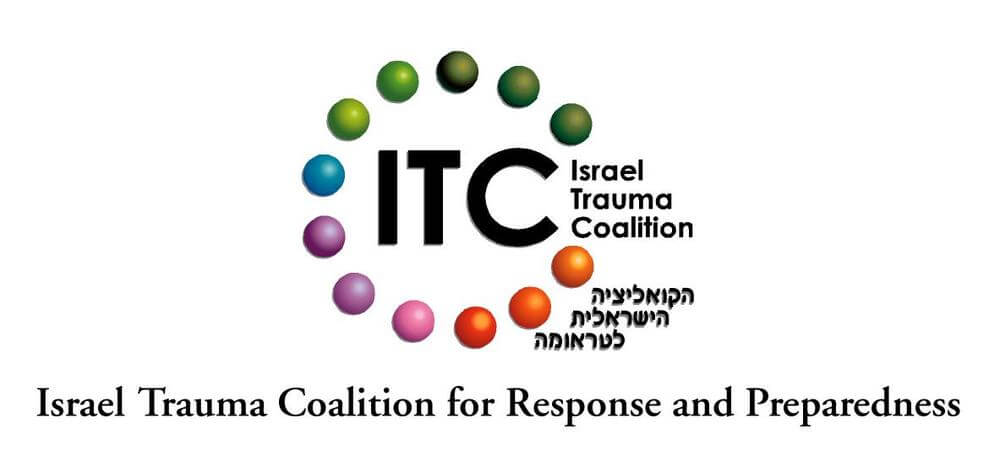Bolstering Resilience in Displaced Israeli Children
Impact Stories:
Providing Advice for COVID-19 Caregivers

March 9, 2020
Israel Trauma Coalition Publishes Advice for Parents and Caregivers Dealing with Coronavirus

Advice for parents/caregivers from Israel Trauma Coalition in light of concerns raised by the COVID-19 epidemic:
Dear Parents/Caregivers,
We are witnessing the spread of the Corona epidemic around the world and at this stage; it is unclear what effect this will have on all of us. At present, routine in most places in the country continues, but we must prepare for a change in the situation. The virus is a new kind of concern, not something we are used to dealing with and therefore can cause stress and affect our emotional state and that of our children.
We want to increase the ability to cope with this stress and strengthen our resilience. The two main causes of stress are uncertainty and feelings of helplessness.
To reduce uncertainty, relevant information should be provided and tailored to each child's developmental stage.
To cope with feeling helpless, one must improve one's sense of self-reliance. This can be achieved in two ways:
1. Maintaining your routine
2. Encouraging activity
As parents/caregivers, you are the most important source of support for your child during times of crisis. Because of this, it is important that you are attentive to signs of distress, provide support and convey confidence.
First, the Ministry of Health's updated guidelines must be followed. You can find them on line.
Here are some practical tips to help you and the children in your care cope with the situation:
Adopt two requisite rules that are suitable for children of all ages:
1) Don't withhold: You have to create an atmosphere of sharing, no secrets, and talk about everything and allow them to ask any questions. Conversely, if parents/caregivers stay huddled together children realize that something dangerous is happening and that the adults are hiding something from them.
2) Don't inundate: If a parent/caregiver feels overwhelmed with worry or stress, they must first take care of themselves. It is permissible to talk about things that concern us but only if we are able to speak about how we are coping with the concern.
Try to maintain routine - routine gives children confidence. Be sure to maintain regular habits, meal times and sleep time. Create opportunities for children to share their thoughts and questions with you. Play, find things that you will enjoy doing together.
Limit children's exposure to news - avoid over-exposing your child to television news broadcasts and discussions. This is especially important for preschool and elementary school age.
Provide age-appropriate information - just tell them the truth, in a simple and reassuring way, without elaborating on the details. Provide the child with information and explain that there is a virus called Corona and that the government is taking measures to keep us all safe. Excess information can confuse children and cause fear and insecurity. Be attentive to the questions and content that engage the children and mediate the reality according to their questions. It is advisable to help the child distinguish between facts and rumors, which will help to control the situation. Teach them that not everything you hear on the street or write on social media is accurate and that the best thing is always ask your parents.
Increase your child's sense of control and ability - teach them how to take care of themselves and their environment by taking care of their hygiene, covering their mouth and nose when sneezing or coughing using a disposable handkerchief or elbow, washing hands with soap before eating and after using the toilet.
Here are some examples of activities that can be initiated: Ask the child to teach their younger sibling the rules of hygiene make a video or write a story that teaches children the rules of hygiene, prepare an ad with the rules for family members. That way the child will feel significant and a full partner in the prevention efforts.
Be aware of your reactions to the event - children learn how to respond to the situation by watching adults in their environment. The children will identify your stress level and respond accordingly.
If your family is required to stay in isolation:
We recommend listening to music and engaging in physical activity. There are many things you can do indoors such as dancing, jumping rope, playing catch and more.
Find fun activities for the kids: board games, drawing, reading books, etc.
You can practice breathing exercises and guided imagery with the children, which you can find on the Internet.
Distance Learning – you can connect to various teaching websites suitable to your community.
It is important to create a structured, consistent and activity-packed agenda for the children.
When should you seek professional help?
Powerful emotional reactions are normal in response to a crisis or significant stressful situation. In general, they tend to fade after a few weeks. At this stage, children and adults return to normal and normal activities. If emotional reactions persist beyond two weeks or worsen, significantly impairing the child’s ability to function in school / work / home, consider seeking professional help.
Subscribe to Impact Digest
Lorem ipsum dolor sit amet, consectetur adipiscing elit
Lorem ipsum dolor sit amet, consectetur adipiscing elit, sed do eiusmod tempor incididunt ut labore et dolore magna aliqua.